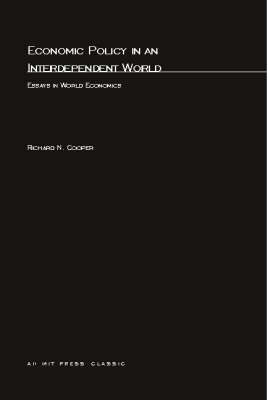MIT Press
1 total work
These eleven essays written over the past fifteen years continue and develop Richard Cooper's central theme of interdependence, reflecting his experience in government in the Council of Economic Advisers and as Undersecretary of State for Economic Affairs. They focus in particular on the opportunities and constraints for national economic policy in an environment where goods, services, capital, and even labor are increasingly mobile. The first four chapters are informal, discursive treatments of economic and foreign policies in the face of growing interdependence among nations. The remaining chapters cover such specialist topics as optimal regional integration, the integration of world capital markets, the impact of greater interdependence on the effectiveness of domestic economic policy, the comparison of monetary and fiscal policy under fixed and flexible exchange rates, currency evaluation in developing countries, and the appropriate size and composition of a developing country's external debt. A concluding chapter surveys the preceding essays in terms of coordinating macroeconomic policymaking in an interdependent world economy.
